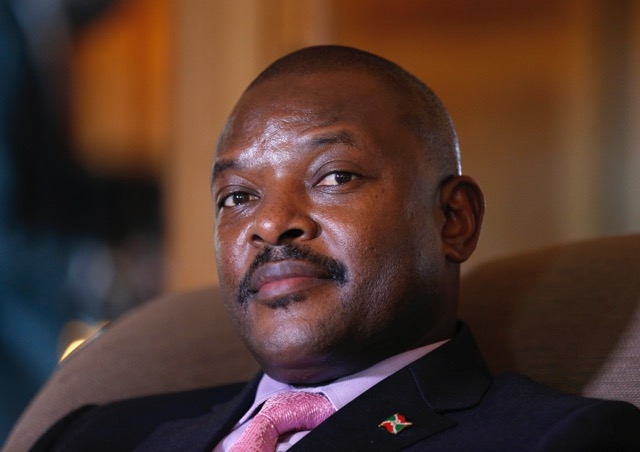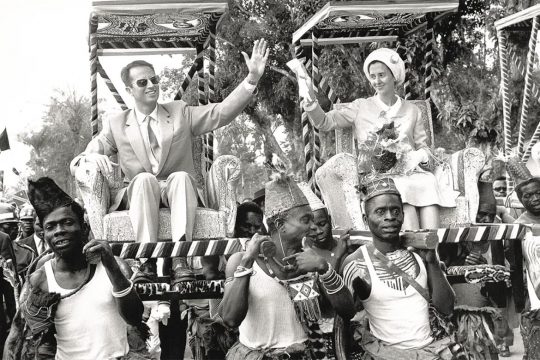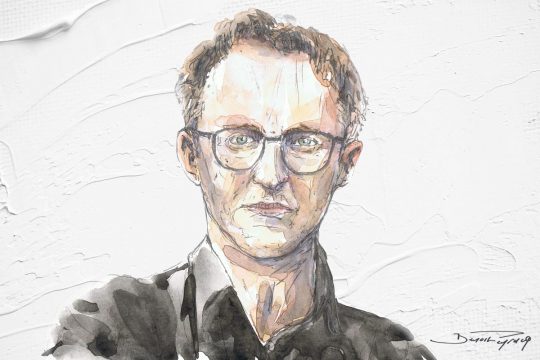A May 5 decision by Burundi’s Constitutional Court is now serving as a weapon for President Pierre Nkurunziza and his regime. Despite unprecedented internal protests and appeals from donor countries, the head of state is clear that he is not giving up on his bid for a third term in office.
His entourage say that by maintaining his candidacy, former rebel Nkurunziza is merely following the wishes of the majority of citizens.
“It is his party, the majority party, that asked him to run,” his spokesman Willy Nyamitwe told journalists on May 31 in Dar Es Salaam during the second East African Community (EAC) summit on the Burundi crisis. “And it is his right. This has been confirmed by the Constitutional Court.
“If our Constitutional Court says it is his right, who can oppose it?” Nyamitwe continued, saying that “those who don’t want Nkurunziza should beat him in elections”.
Timid call from African Heads of State
The opposition say the President, who is coming to the end of his second mandate, is violating the Constitution. The Constitution sets a two-term limit. However, he says it is his right to run again, since in 2005 he was elected by Parliament and not by the people.
The sovereignty of Burundi and its institutions certainly weighed heavily at the EAC summit in Dar Es Salaam. A Tanzanian diplomat, while not at all convinced of the independence of Burundi’s Constitutional Court, predicted that the summit would not take any binding decisions. “The Constitutional Court decision is now the main weapon of the Nkurunziza camp,” he said. “Who are we to say Burundi’s judicial system is not independent? Are our judicial systems any more independent than Burundi’s? Can we really preach to our Burundian brothers about this?”
The EAC summit concluded unsurprisingly with a timid call for the elections to be postponed by at least a month and a half.
In Bujumbura Nkurunziza’s supporters, already boosted by the failure of the coup attempt in mid-May, savoured a small victory, whereas the opposition and civil society expressed disappointment.
UN mediator steps down
This ambiguous response by the EAC summit also failed to provide ammunition for a stronger stand by the UN mediator in the Burundi crisis, Saïd Djinnit of Algeria, who stepped down on Thursday, June 11. Burundian opposition and civil society activists had called for him to go, saying he was not neutral.
It is against this background that the Presidency on Wednesday, June 10 issued a decree setting a new electoral calendar. Legislative elections, which were initially set for May 26 and postponed the first time to June 5, are now scheduled for June 29. The presidential elections have been postponed from June 26 to July 15.
The opposition and civil society reject not only the new calendar but also the legitimacy of the Independent National Electoral Commission (CENI), two of whose members have fled abroad. CENI decisions need a majority of 4 out of 5.
Charles Nditidje, one of the main opposition leaders, deemed in an interview with AFP that “we can’t have elections now unless we sit down together to negotiate the creation of a new CENI”. “Political and security conditions are not conducive to holding elections unless we disarm the Imbonerakure (Editor’s Note: ruling party youth) and Nkurunziza gives up his bid for a third mandate,” he said. But government spokesman Philippe Nzobonariba repeated Tuesday that Nkurunziza’s candidacy was “non-negotiable”.
Who can be Burundi’s Saviour?
“It is difficult to predict what will happen,” says Carina Tertsakian, Human Rights Watch (HRW) researcher on Burundi. “The situation is very uncertain.
“At the moment, the different parties do not seem to be able to find common ground. Even if the elections take place, it is likely that political tension will continue,” she says, calling on mediators to “insist on the respect of fundamental rights as a vital condition for holding credible elections”.
“The African Union is probably best placed to try to find solutions,” continues Tertsakian, who doubts neighbouring countries can really help Burundi out of the crisis, because of their own interests. “Even if they can play a positive role, it would be preferable that the main mediators be individuals or countries perceived as neutral and a bit distanced,” she says.
“But we see that even calls coming from far away are not heeded,” says a young Burundian journalist, who then asks “so who can be the saviour for my country?”






